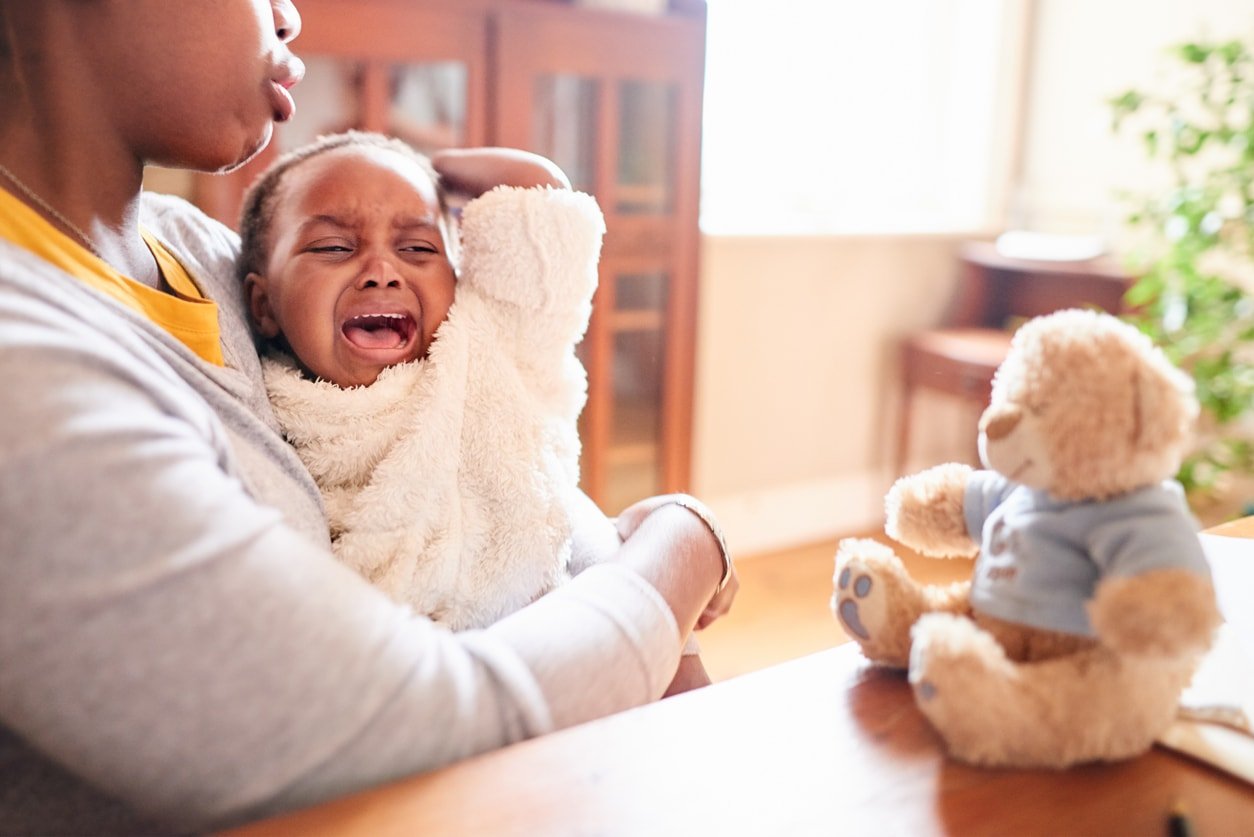One day, when my daughter was a toddler, we had a terrible morning before dropping her off at daycare. My toddler was acting out, and everything was a battle; she had to change her socks three times, her toast wasn’t cut in the right direction (“I wanted triangles, not squares, mommy!”), and when I tried to buckle her in her car seat, it was like wrestling with a cranky, wriggly octopus.
I warned her educators about our tricky morning, and when I went to pick her up later that afternoon, I flinched as I awaited their response after I asked how her day went. “She was a delight; she had such a wonderful day!” I was shocked; how could my darling daughter be so different for me? Well, I’m not the only one reporting this phenomenon, and it may be a positive thing when our little people act out just for us. “Wait, what?” I can hear you ask; read on to learn why your toddler is acting out for you but being a total angel for everyone else.4
Why Does My Child Behave for Everyone But Me?
If you have found yourself asking this question, you aren’t alone. One psychological theory tells us all we need to know about why this happens — attachment. Attachment theory, founded by Mary Ainsworth and John Bowlby, explains that young children must develop a relationship with a primary caregiver. The quality and dynamics of this relationship influence how they behave and feel within other relationships. There are four types of attachment:1
- Secure
- Ambivalent
- Avoidant
- Disorganized
The kind of attachment relationship that might influence your toddler acting out for you and behaving for others is called “secure attachment.”
What is Secure Attachment?
Babies cry when they’re upset. Infants whose primary caregiver responds consistently and appropriately to these needs — they comfort their baby when it becomes upset — become securely attached.1,2 They understand that their key attachment figure will care for them and keep them safe. They understand that their caregiver understands and wants to help them meet their needs.
This makes babies feel secure enough to explore the world around them because they know that if something goes wrong, they have someone to return to for comfort, love, and safety. In turn, this helps them learn and develop appropriately. Securely attached children tend to have better self-esteem, are more independent, achieve more in education, have higher-quality relationships, and experience less anxiety and depression.2,3
Why Does My Toddler Act Different at Daycare Than at Home?
Here are five reasons why your toddler acts differently at daycare than they do at home.1,2,3,4
1. They Feel Safe Expressing All Their Emotions
When your toddler is acting out for you but not other people, it means they feel safe enough to express their emotions in front of you. They know there is nothing they can do that will make you stop loving or looking after them, so they feel comfortable letting it all out.
2. They Trust You Can Help Them
Securely attached children know that not only can they trust you to create a safe space to express their feelings, but they also trust that you can help them identify and meet their needs. Our children aren’t born knowing how to identify their feelings or what to do to manage big emotions, so knowing they can turn to you for help is reassuring and makes them feel safe.
3. They Don’t Feel as Secure Seeking Comfort from Others
Your precious toddler acting out might mean they have been saving up all their worries, hurts, sadness, and anger until they see you again. They might feel unsafe letting their emotions out except when they are with you.
4. They are Exhausted from Holding It in for Everyone Else
Not only might they be bottling up their feelings until they are in your safe and comforting arms, but managing and containing their feelings might be exhausting your child. This adds to the jumble of emotions and physical and emotional discomfort. So when you come and collect them, or they lay eyes on you, out come the feelings!
5. They Know Your Triggers
This is not necessarily due to secure attachment, but your little person knows you just as well as you know them. Your toddler acts differently at daycare than at home because they know which buttons to press to make you tick or make you respond or react to them in a certain way. They don’t know anyone else this well, nor do they feel as secure or safe to “test” other people because they can’t always be confident of the reaction they will get.
It’s easy to assume your child likes other people better than you because they behave differently — but it’s the opposite. This pattern of your toddler acting out for you and not other people might be a sign of secure attachment for your child. I know that what I’m saying might not feel like a positive thing. It’s still exhausting and challenging if your child saves up all the tricky behaviors for you. So you must find time for self-care or time apart to recuperate and recover your energy. It also doesn’t mean the behavior isn’t problematic, even if we can understand its origin. Ensure that you seek support if you need help finding ways of managing and supporting your child with challenging behavior — this could be with your family doctor, a pediatrician, or a mental health professional.


